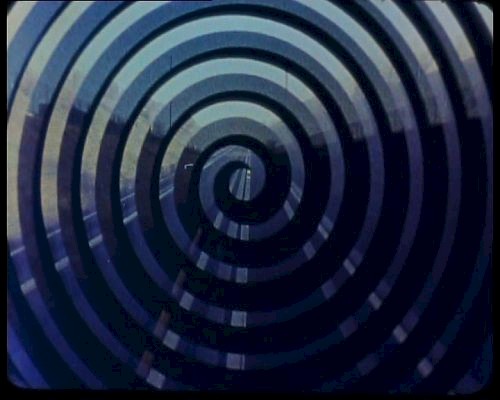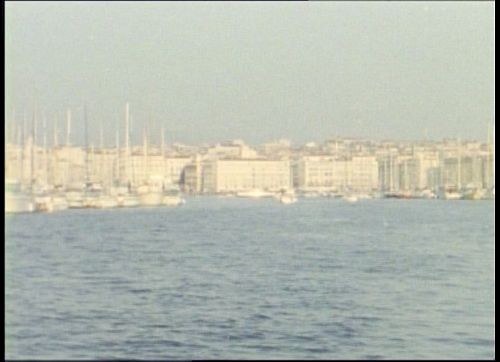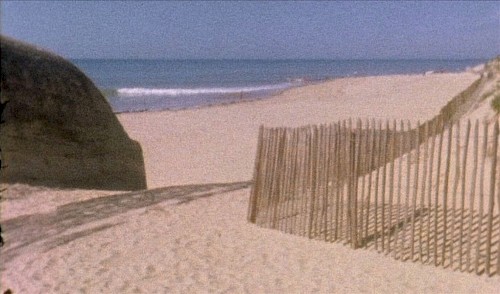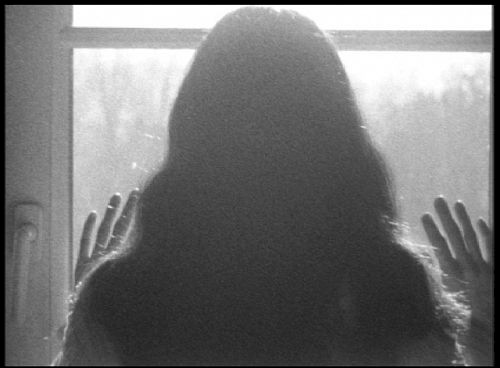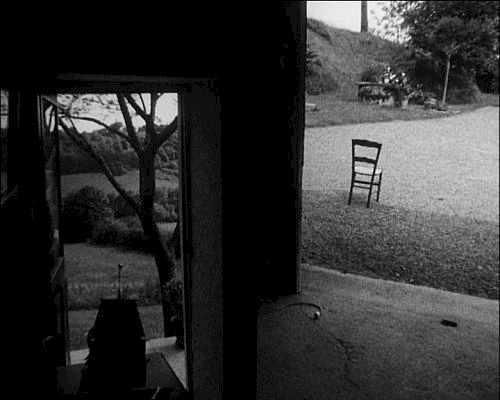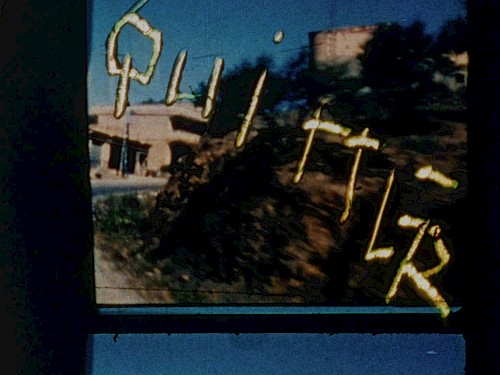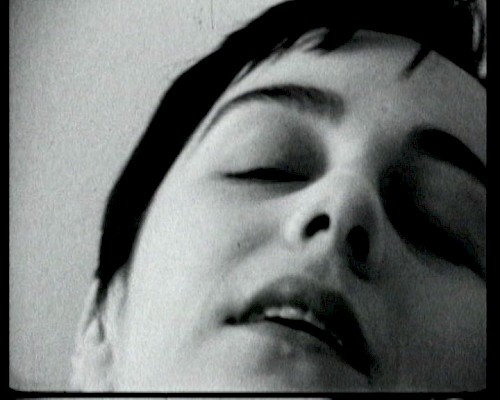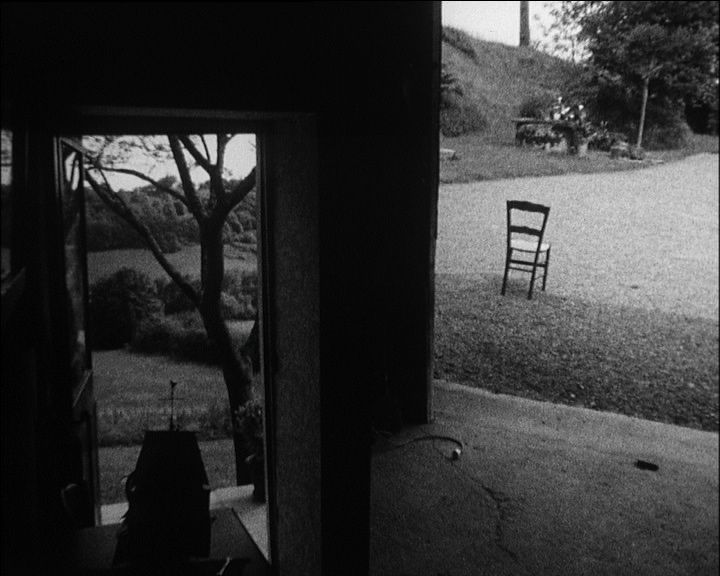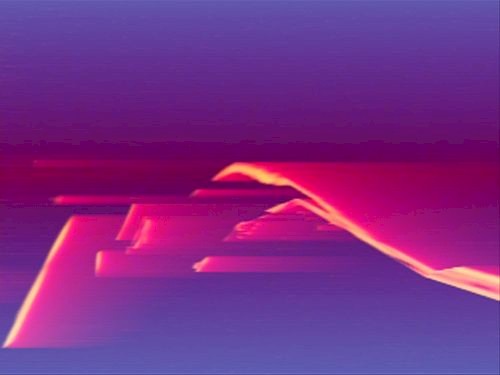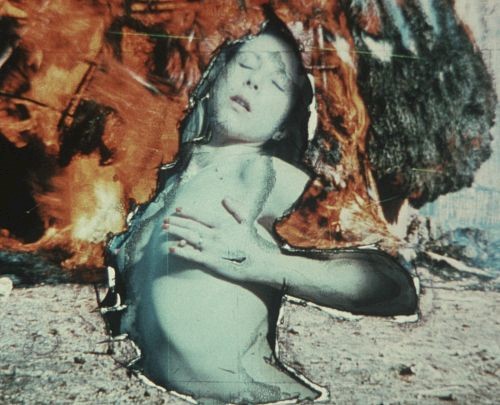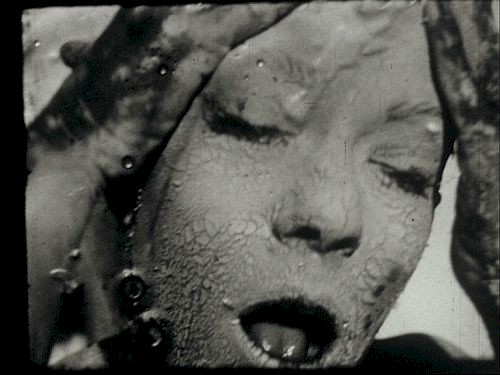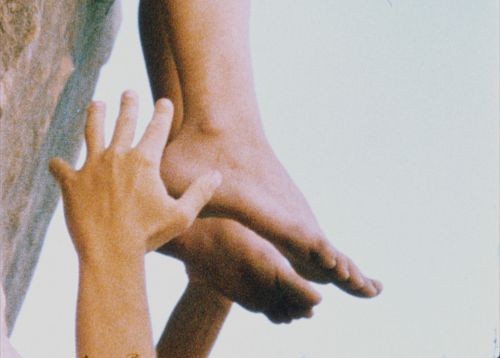In 2000, Bernard Cerf, Philippe Lebret and Laurence Rebouillon created Les Productions Aléatoires to produce their films and to defend a different, experimental and politically active cinema, to help unfunded films for which the scenario is not the most important thing. In 2004, the CNC finally opened the financial contribution for experimental short films. LPA then encouraged the filmmakers of Collectif Jeune Cinéma “to submit an application”. Tonight’s program gives an overview of films that have benefited from this fund and others made in a hurry, responding to an immediate desire or need. (Bernard Cerf would have liked to show more films, but the session is not extensible and I made a choice).
At the beginning LPA was a group of three friends, who wanted to set up their own production system, with the aim of DOING, without waiting to write and rewrite a script, a director’s statement, that the producers we approached with our desire and passion for cinema asked us. The first creative act was Le Sourire d’Alice, a medium-length film of 45’, financed by my own funds, shot in Super 8 and broadcasted in 16 mm. Without a script, I carried a Super 8 camera for almost a year (1999-2000). Broadcasting in 16 mm or 35 mm was then the only way to show my film in festivals that took place in theaters. In the credits of Le Sourire d’Alice, “Les Productions Aléatoires presents” appeared. Noticed in festivals and bought by Arte, this film appears as a UFO among other short film makers of that time. The film stands out for its freedom of tone and form. A narrative autofiction (in the spirits of the time) but mistreated, turned upside-down again and again, displaying an assumed lesbian sexual orientation and driving the love stories and introspections which innervate the film without much chronology. The festivals, which were surprised for a while, did not take long to include experimental films, which then began to appear, in specific sections, like the Labo Competition in Clermont-Ferrand or the Essai/Art Vidéo of Côté Court in Pantin.
With LPA, we also wanted to be part of the economy, by creating a limited liability company to access funding from the CNC and the regions, and to obtain exhibition permits to release the films in theaters. As for Crime by Vincent Ostria (63’, 2010) whose Bernard Cerf organized the national release, with press agent, notably at the cinema l’Entrepôt, Paris 14e. To show that experimental films had their place within the production of French art cinema, to slip a pebble into a well-oiled machine, as for example, to sign auteur contracts at 80% for the filmmaker and 20% for the production. We never intended to make a living with LPA. Like my involvement with the CJC and Bernard with the festival, our approach was an activist, a romantic one.
At the creation of the LPA, all the French structures of experimental cinema from CJC, Light Cone, Paris Film Coop, L’Abominable, Mire, were asking for subsidies from institutions for their association. It seemed logical to us then to ask for funding to make films. The old quarrels of the 70s could reappear. Nevertheless, in 2004, the CNC opened the door to experimental cinema through the financial contribution to short films (a box named “experimental” appeared in their checklist. This box then disappeared, replaced by the “Essai” box, which favors documentaries). LPA then proposed to the CJC filmmakers to produce them and to apply for this fund. We had allies in this commission, notably Nicole Brenez. Faux Mouvement by Pip Chodorov, Plume by Cécile Ravel, Reste-là by Frédéric Tachou and K(Exil) by Frédérique Devaux, with their more detailed applications, also benefited from this fund. About ten films produced by LPA received a sum of 20 000 to 35 000€ that was invested in the making of the films. The regional councils of Burgundy, Pays de la Loire, Limousin, PACA and Île-de-France completed some of the financing plans.
This one-time financial contribution did not change the experimental approaches of these four filmmakers who continued their work in film, with the optical printer, at the exhibition. Work generally undertaken at the Abominable. Faux Mouvements continues the research begun in Charlemagne 2: Piltzer, (for me an absolute masterpiece of experimental cinema and of cinema tout court) around perception. In Faux mouvements, the forward and backward movement is done at the same time and the movement in different directions is combined. We thus perceive movement in images that are, in fact, static.
Remains there, through a system of hide and seek, dislocates the familiar universe, shattered by the death of the father. Produced at L’Abominable until the negative is edited, it is shot in 35 mm in a professional laboratory. K(Exil) belongs to the cycle of K, a documentary made from 2003 about the Berbers. LPA produced two films in this series, K(Berber Dreams) and K(Exile), with music by Djamal Tareb, made for these short documentaries. K(Exile) is composed of images of women and children left alone in the country, at the time of the exile of men. In the images, never complete (either cut out or broken up when discovering the image), positives and negatives alternate, complementary or contradictory, to render in a sensitive way the heartbreak of the populations left in the country and abandoned on an difficult land. On the “joints”, as Frédérique calls them, words in Kabyle or in French are engraved, scratched on the film, echoing the two male voice-overs of Rachid Adel and Michel Amarger.
Cécile Ravel could, among other things, with this financial help, transfer her 20’ Plume film directly from Super 8 to 35 mm in a professional laboratory (a very expensive operation, even at the time). Cécile could not attend the screening of her copy, which had just come out of the bath, so I found myself in the Cinédia screening room, experiencing one of the most beautiful silver delights of my life. Shortly before, I had given up transferring the multi-shots of West Point (shot at 24i/s mixing S8 and 16 mm) to 35 mm, preferring to kinescope the 57’ of the final cut. The help of the CNC for West Point allowed us to reach other fundings, from the PACA Region, the Île-de-France Region and a pre-purchase from France 2 (Christophe Taudière, in charge of acquisitions, pre-purchased the medium-length film (distributed by the CJC) À une enfant qui danse dans le vent by Marc Barbé, produced by the company La Vie est Belle. An exceptional year that only Bernard Cerf’s Ravachol was able to renew. These funds for Plume, West Point and Ravachol also allowed us to “correctly” pay the actors and technicians present and faithful to our broke films.
Finally, Avril 99 by Bernard Cerf or Ciao Bella Ciao, are films shot in an emergency, mixing the intimate with the noise and fury of the world. The wars in Ex-Yugoslavia and the rise of the FN in France. Ciao Bella Ciao belongs to the series Reactions to April 21, 2002, 7 political films made between the two rounds of the 2002 presidential election [1]. The intimate, where the feeling of love or filial is experienced in the loss. A theme that runs through Philippe Lebret’s Absence, a film of emergency deferred for a dozen heartbreaking years. Articulating films from the margins, fragile films and above all allowing the creative and courageous gesture of making, a motto at the heart of LPA from its creation until today.
— Laurence Rebouillon
